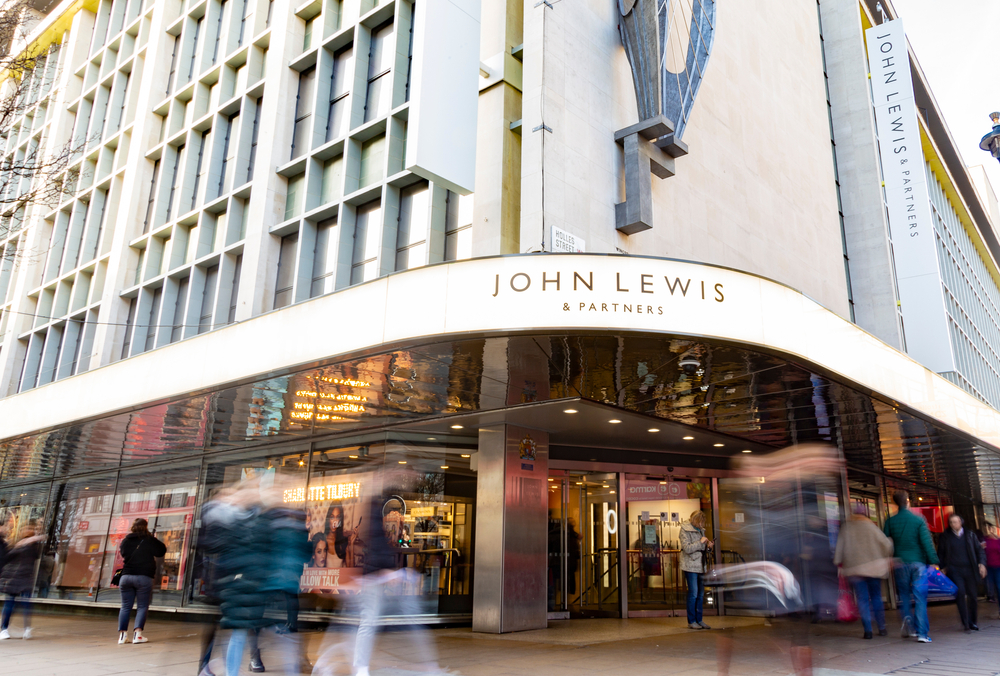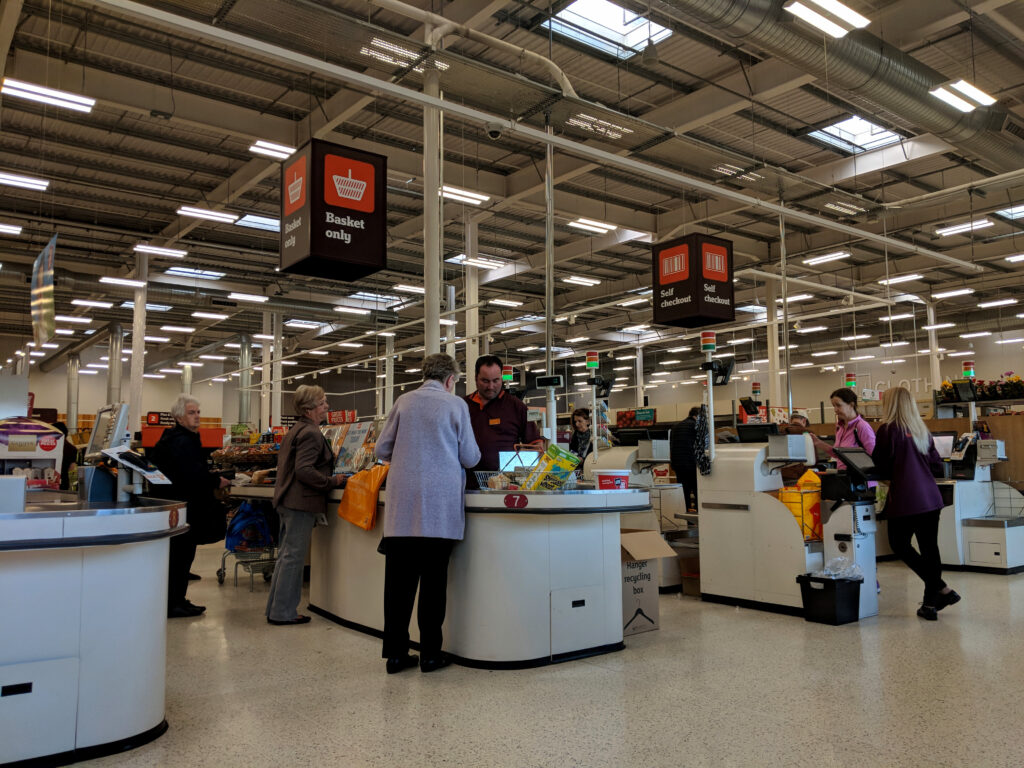Retailers are reporting major challenges recruiting suitable talent, as a combination of factors including Brexit and the coronavirus pandemic have made resources scarce.
And in terms of their existing workforces, retailers face a growing battle to ensure they are providing the relevant personnel support, development opportunities, training, and general environment to keep a new breed of employee motivated, included and happy.
These topics and much more were discussed as representatives from an array of UK retailers joined Retail Gazette and human capital management software company, Ceridian, for a roundtable event on 27 October.
Senior figures from retailers such as Boden, Ellis Brigham Mountain Sports, Lush, Marks & Spencer, and THG attended the event, for a timely conversation on how Covid-19 and other socio-economic factors are reshaping the industry.
The war on talent
As first reported by the Guardian, Amazon is offering one-off bonuses of up to £3,000 to tempt people to work for the business in the forthcoming Christmas period.
This indicates – and was clarified by roundtable guests – that there is a real battle for appropriate candidates in the retail industry. “It is very difficult to find staff right now,” said one participant, who acknowledged there is currently a dearth of applicants.
Another suggested the pandemic “has made people realise they want to work in tech”, while another said their organisation and others like it are in competition with warehouses, where shifting boxes for relatively good pay is proving a draw.
There were many nods around the table at the suggestion retail needs to do more to market itself – as not just a service industry but as “a profession”. Event attendees suggested several ways they are taking action on this target.
Chris Rigg, retail director at outdoor pursuits equipment specialist Ellis Brigham, said: “People in the organisation know that we look after them, but it’s getting increasingly important to communicate that externally during the recruitment stage – retailers looking for talent have to promote that side of things now.”
Meanwhile, Sophie Hann, deputy senior manager at cosmetics retailer Lush’s London Oxford Street store, commented: “We’ve tailored learning and development to people’s individual interests.
“It’s all about helping ensure people have a reason to come to work – we want them to know they can follow their dreams here.”
She added: “We tell our staff in stores that it’s their job to make people happy – they are day makers. That provides motivation for them, and a positive environment.”
Hiring managers at the event discussed the need to learn different skills since the onset of the pandemic, including “learning how to negotiate” in what has become a “jobseekers’ market”.
Giving more of a picture of what the recruitment market is like for retail, one guest spoke of launching a friend referral scheme to generate candidate interest, while another spoke of the need for new processes in order to get back to interviewees quicker.
In the case of required skills missing from a candidate’s CV, one retailer said finding people with the “right values” can lead to productive recruitment.
Jason Toogood, director of alliances at REPL, a retail technology consultancy group part of Accenture, suggested at the event that retail human resources leaders “need to be salespeople” in order to increase their chances of recruiting the best talent.
Bringing people together
Part of what makes a thriving culture in modern retail is how the business communicates with its staff, and the ways in which it allows the voice of staff to flow upwards – as opposed to relying solely on a traditional top-down management structure.
Known as “upside-down management”, and promoted particularly strongly at companies such as the Timpson Group, this approach can encourage creativity and build a more inclusive environment. Ad hoc evidence suggests more retailers are incorporating this way of thinking, and the roundtablers agreed it was a direction of travel.
Rigg commented: “Just talking to the workforce about what is going on is so important – increasingly so in a pandemic when so many things change at pace.”
He added: “We’re always debating how to connect head office with those who don’t have email on the shopfloor.”
New technologies are playing a part in linking otherwise disparate parts of a retail business, according to the roundtable debate.
“Some of the processes we have put in place to connect people can be too cumbersome, so as usual the secret is to provide something that our colleagues can access on their phones and on the move,” Rigg noted.
“We already provide e-training, and we expect more digitalisation of workforce management.”
Hann added: “Last year we introduced Google Workspace, which ensures the wider workforce is kept in the know and connects the shopfloor to buying teams, for example.
“The link between head office and the store teams has improved – the new technology we’ve introduced is helping in that regard.”
Retailers are also increasingly recognising the importance of showing strong social awareness, with dedicated policies and initiatives related to issues such as anti-racism, good health and wellbeing, the environment, and charitable behaviour. All these elements are part of what employees expect from their employers in today’s market.
An industry awakening
It was clear from the discussion it is a challenging time for retailers in terms of running an efficient, productive and happy workforce – with the aforementioned diversity and inclusion policies at the front and centre of company thinking rather than a side thought.
One roundtabler said online fashion house Asos’s recently rolled out policies relating to providing staff flexible working and time off when experiencing the menopause, as well its newly-announced extended paid leave arrangements for staff experiencing fertility treatment and pregnancy loss were “a benchmark” for the modern workplace.
Who a company is still holds resonance for jobseekers, but what a company does and the values it displays are increasingly important to today’s workforce. Organisations that build a culture around countering ageism, sexism, racism or any other discrimination are clearly attractive to many people – but for the new generation of workers it can be a dealbreaker in their career decisions.
Summing up the current environment, Rigg said: “For the last 18 months we as an industry have been striving to keep going amid the wider health and economic crisis engulfing society.
“And now we’re all waking up to the fact we’ve got to change our proposition around recruitment. There’s more demanded of us as employers, and rightly so.”
Helen Seale, deputy vice president for enterprise at Ceridian UK & Ireland, who joined the retailers in the discussion, said: “The war on talent is real in retail, as the roundtable discussions showed only too clearly.
“A perfect storm of events has created a challenging recruitment environment for retailers, as we approach the industry’s busiest time of the year. And, what’s more, recruitment is only the first stage – they must now consider a host of other new staff welfare and personnel issues that have catapulted to importance in recent years.”
She added: “Retailers now need to be flexible, technology-enabled, and creative in their deployment of staff to manage today’s sought-after and more empowered workforce.”
Click here to sign up to Retail Gazette‘s free daily email newsletter


















